Are you struggling with multiple debts, such as credit cards, car loans, and personal loans? Do you find yourself overwhelmed by the high-interest rates and monthly payments? If yes, then you might want to consider refinancing your mortgage to consolidate your debt if your LTV and DTI will allow you to.
Refinancing your mortgage means taking out a new loan to replace your existing one. By refinancing, you can get a lower interest rate, reduce your monthly mortgage payment, and even shorten your loan term. You can also use this opportunity to consolidate your debt by borrowing more than your outstanding mortgage balance and using the extra funds to pay off your high-interest debts.
In this blog post, we will discuss the benefits and drawbacks of using a refinance to consolidate your debt, how the process works, and what to consider before making this decision.
Refinance to Consolidate Debt: The Benefits
One of the most significant benefits of refinancing your mortgage to consolidate your debt is that you can reduce your interest rates significantly. Credit card debts, for instance, can come with an interest rate of 20% or more, while mortgage rates are generally much lower. By refinancing, you can get a lower interest rate on your overall debt, which can save you a lot of money in the long run.
Another benefit of refinancing to consolidate your debt is that you can simplify your finances. Instead of having multiple monthly payments for various debts, you will have only one monthly payment to make. This can make it easier for you to manage your finances, reduce stress, and avoid missing payments.
Moreover, consolidating your debt through a mortgage refinance can also help you improve your credit score. When you pay off high-interest debts with a refinance, you will have a lower credit utilization rate, which is a crucial factor in determining your credit score. A lower credit utilization rate means that you are using less of your available credit, which can improve your creditworthiness and make you eligible for lower interest rates on future loans.
Refinance to Consolidate Debt: The Drawbacks
While refinancing your mortgage to consolidate your debt can be an effective way to lower your monthly payments and simplify your finances, it also comes with some drawbacks.
Firstly, you need to have enough equity in your home to qualify for a refinance. Most lenders require a minimum of 20% equity in your home before considering your application. If you have a low credit score or a high debt-to-income ratio (DTI), your chances of getting approved for a refinance may be lower.
Secondly, refinancing your mortgage comes with closing costs, which can be expensive. You will need to pay for an appraisal, title search, loan origination fees, and other costs, which can add up to thousands of dollars. Therefore, you need to calculate your total savings carefully and compare it to the costs of refinancing to see if it is worth it.
Finally, consolidating your debt through a mortgage refinance can also increase the total amount of interest you pay over the life of the loan. While you might be paying a lower interest rate on your debt, you are also spreading it over a longer loan term. Therefore, you need to consider the total cost of your debt, including interest, before deciding to refinance.
Refinance to Consolidate Debt: The Process
If you decide to refinance your mortgage to consolidate your debt, here are the steps you should take:
Check your credit score and debt-to-income ratio (DTI)
Before applying for a refinance, you should check your credit score and DTI to see if you are eligible. Most lenders require a credit score of at least 620 and a DTI of 43% or less to qualify for a refinance.
Your credit score is an important factor in determining your eligibility for refinancing to consolidate debt. Lenders want to see a good credit history and a low debt-to-income ratio before they will approve you for a refinance. If you have a low credit score or a high debt-to-income ratio, you may not be eligible for a refinance or may only qualify for a higher interest rate.
Mortgage Rates
Mortgage rates are an important consideration when refinancing to consolidate debt. You want to make sure you are getting a lower interest rate than you currently have, so you can save money over the life of your loan. You’ll also want to consider the type of mortgage you want, such as a fixed-rate or adjustable-rate mortgage.
Fixed-rate mortgages have a set interest rate that remains the same for the life of the loan. This can be beneficial if you want a predictable monthly payment that won’t change over time. Adjustable-rate mortgages have a variable interest rate that can change over time. This can be beneficial if you plan on paying off your debt quickly and want to take advantage of a lower interest rate in the short term.
Home Equity
Another factor to consider when refinancing to consolidate debt is your home equity. Home equity is the difference between the current value of your home and the amount you still owe on your mortgage. If you have a significant amount of home equity, you may be able to borrow more money when refinancing, which can help you consolidate more debt.
Debt-to-Income Ratio (DTI) and Loan-to-Value Ratio (LTV)
Before you consider refinancing your mortgage to consolidate your debt, you need to assess your debt-to-income ratio (DTI) and loan-to-value ratio (LTV). Your DTI is the percentage of your monthly income that goes towards debt payments. Lenders typically prefer a DTI of 36% or lower, and anything above 50% can make it difficult to qualify for a loan. Your LTV, on the other hand, is the ratio of your mortgage balance to the appraised value of your home. The lower your LTV, the better chance you have of qualifying for a lower interest rate.
Middle Credit Score
Your credit score is one of the most important factors lenders consider when determining your interest rate. A higher middle credit score generally means a lower interest rate, while a lower credit score can lead to a higher interest rate. Before you apply to refinance to consolidate your debt, you should check your credit score and make sure it’s in good standing. If it’s not, you may want to work on improving it before applying for a loan.
Closing Costs
When you refinance your mortgage, you will have to pay closing costs, which can be several thousand dollars. These costs include fees for the appraisal, title search, and other services. Before you refinance to consolidate your debt, it’s important to factor in the closing costs to make sure that the savings you will receive from the lower interest rate will outweigh the costs of refinancing.
Cash-Out Refinance
A cash-out refinance is a type of refinancing where you borrow more money than your current mortgage balance and receive the difference in cash. This type of refinancing can be a good way to consolidate your debt if you need to pay off high-interest debt quickly. However, it’s important to keep in mind that you will be borrowing more money, which means you will have a larger mortgage balance and potentially higher monthly payments.
In Conclusion
Refinancing to consolidate debt can be a smart solution for homeowners who want to simplify their finances, save money on interest, and pay off debt faster. When considering a refinance, it’s important to consider your mortgage rates, home equity, and credit score to ensure you’re getting the best possible deal. With the right strategy, refinancing to consolidate debt can be a great way to take control of your finances and achieve your financial goals.
(Review our Refinance Calculator to consider if a Refinance is the best option for you. Also, before the refinance process, remember to check your middle credit score at Middle Credit Score® to ensure your middle credit score, which is the approval credit score most lenders use, is the strongest it can be. Doing so allows consumers to avoid lenders’ guidelines which will often charge higher fees, points, and interest rates with a lower-than-average middle credit score. Plan ahead with MiddleCreditScore.com.)







